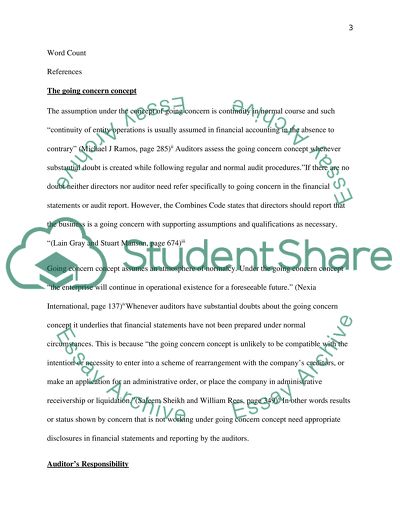Cite this document
(Going Concern Auditing Essay Example | Topics and Well Written Essays - 1500 words - 1, n.d.)
Going Concern Auditing Essay Example | Topics and Well Written Essays - 1500 words - 1. https://studentshare.org/finance-accounting/1562862-auditing
Going Concern Auditing Essay Example | Topics and Well Written Essays - 1500 words - 1. https://studentshare.org/finance-accounting/1562862-auditing
(Going Concern Auditing Essay Example | Topics and Well Written Essays - 1500 Words - 1)
Going Concern Auditing Essay Example | Topics and Well Written Essays - 1500 Words - 1. https://studentshare.org/finance-accounting/1562862-auditing.
Going Concern Auditing Essay Example | Topics and Well Written Essays - 1500 Words - 1. https://studentshare.org/finance-accounting/1562862-auditing.
“Going Concern Auditing Essay Example | Topics and Well Written Essays - 1500 Words - 1”. https://studentshare.org/finance-accounting/1562862-auditing.


